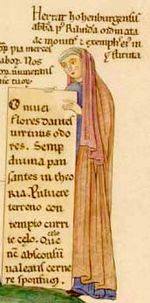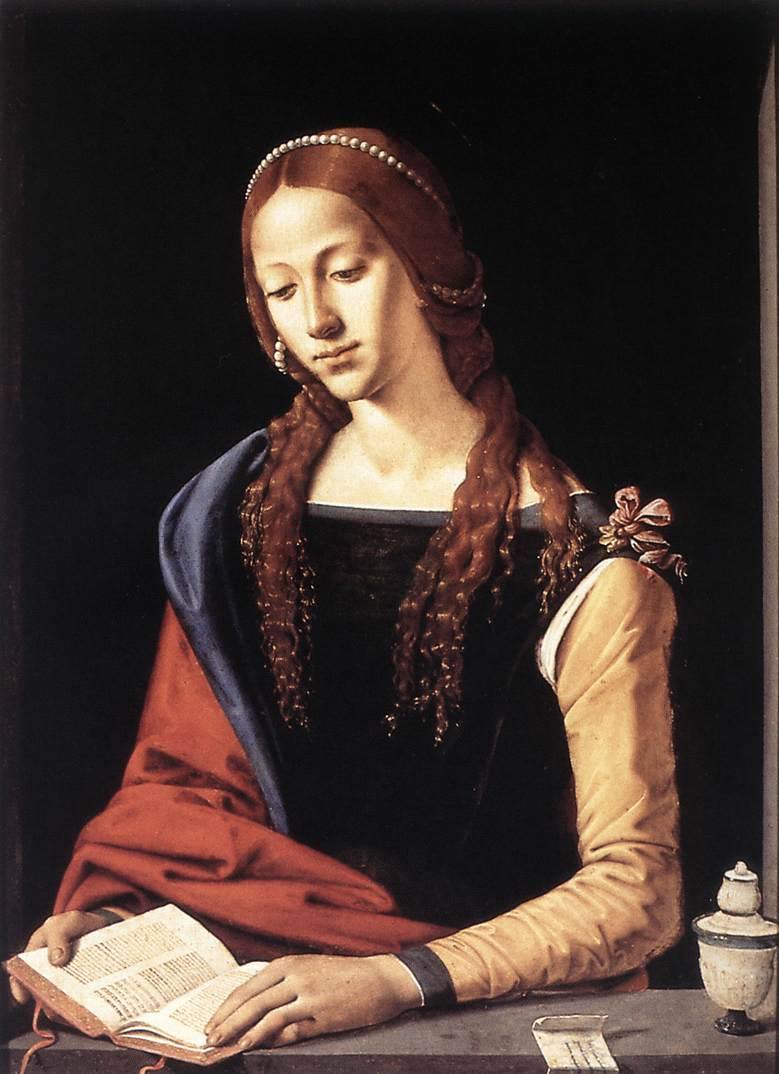Over the past five weeks, I’ve worked on an UG Research Scholarship related to Emily Wingfield and Elizabeth L’Estrange’s project on “women and the book”, that looks at the legacy of Susan Bell’s 1982 ground-breaking essay about female book owners and readers. In this blog, I will talk about how the project has been a great opportunity that has helped me to improve my research and linguistic skills and find out more about woman’s relationship with written culture in the European Middle Ages.
During the project, I’ve researched sources about Italian, Spanish, German, English, Welsh, Dutch and Scandinavian women who often proved to be voracious readers, scribes, writers and translators of secular and religious books. This, despite the fact that, at the time, many men thought that women did not need to learn how to read and write and that the only books suitable for women were religious works. At the beginning of the project I focused on Germany, Spain and the Netherlands. I found several examples of German religious women who read works in Latin and vernacular, who were scribes, translators or wrote original compositions, such as Herrad of Landsberg (12th century) who wrote the Hortus deliciarum. In Spain, from the 11th to to the 16th centuries there were several examples of women writers and educated women, such as the Arabic-Spanish poetess Wallada la Omeya (11th century), the poetess Florencia del Pinar (15th century), Elvira de Guzmán (16th century) who owned a very well-stocked library and Luisa de Medrano (16th century) who taught rhetoric at the university of Alcalá de Henares, near Madrid. In Holland, in the 14th and 15th centuries, because of the higher demand for books and the increase in manuscripts and the production of religious books, the female members of the Devotio Moderna helped in the production of vernacular literature; laywomen also started to be part of craft guilds that were involved in the production of books.
Following this, I started to focus on Italy, England, Wales and Scandinavia. In Italy, especially in the 16th century, there were many examples of educated women such as Ippolita Sforza, Laura Cerata who wrote a letterbook, and Cassandra Fedele who debated philosophical and theological principles with male intellectuals. Moreover, I also found examples of women who worked as printers, publishers and booksellers between 1475 and 1620. Concerning England, I especially found examples of women translators such as Mary Bassett who translated the first five books of Eusebius’ Ecclesiastical History from Greek into Latin and English. An example of a female Welsh writer of the Middle Ages is Gwerful Mechain who composed her works between 1462 and 1500. In Sweden, the most famous figure and the one that I focused on was Queen Christina (1626-1689).
Researching “women and the book” for five weeks gave me an insight into the research world. For an undergraduate student, five weeks of research might sound like enough time to achieve a more than satisfactory conclusion. However, once I was done with my project, I realised that there were still some gaps that needed to be filled and that even the research of only one topic can be really vast and diverse. This project taught me that it is important to be flexible and open-minded. The research, sometimes, might not lead to what you expected. In these cases, it is important to be ready to change perspective, think about which way the research is going and go on with the project. Moreover, this European-wide research gave me the opportunity to read articles in different languages and to think about the similarities and differences between the different countries, but also between the different periods of the Middle Ages. Therefore, the UG Research Scholarship gave me the possibility to improve my linguistic and research skills that will surely help me with my further studies.
In conclusion, this project gave me the possibility to improve my academic skills, and at the same time it allowed me to find out more about “women and the book” in the Middle Ages which is a really interesting and fascinating topic that should receive more attention. I would definitely recommend the UGRS scheme to future students. It is a great opportunity that really helps you to develop important academic skills.


